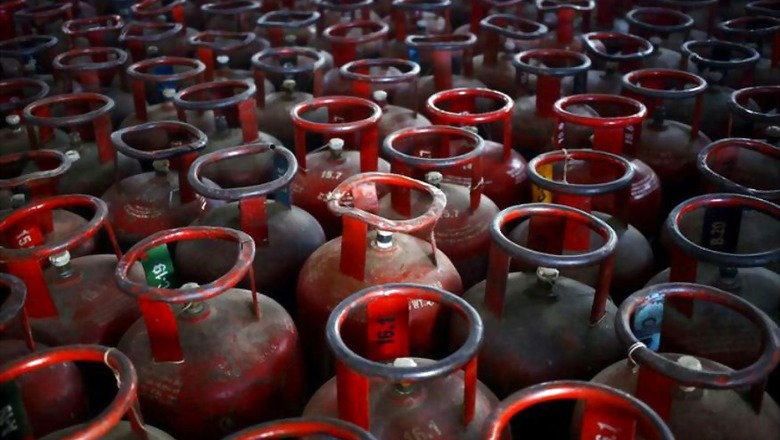
views
Jet fuel (ATF) price was on Monday hiked by a steep 56.5 per cent and that of non-subsidised cooking gas LPG by Rs 11.5 per cylinder on the back of firming up of international oil rates, but petrol and diesel prices continued to remain on freeze for a record 78th day.
Aviation turbine fuel (ATF) price was hiked by Rs 12,126.75 per kilolitre (kl), or 56.5 per cent, to Rs 33,575.37 per kl in the national capital, according to a price notification by state-owned oil marketing companies.
The hike in jet fuel price comes after seven consecutive reductions in rates since February. ATF price in Delhi before the reduction cycle began in February was Rs 64,323.76 per kl, which got reduced to Rs 21,448.62 last month.
Industry officials said the hike was necessitated because benchmark international rates have bounced back from a two-decade low.
On similar cues, non-subsidised LPG price was hiked by Rs 11.50 to Rs 593 per 14.2-kg cylinder.
The hike comes after three straight monthly reductions in rates of non-subsidised LPG, which users who have given up subsidy buy. Also, this is the gas that domestic household consumers buy after exhausting their quota of 12 cylinders of 14.2 kg each at subsidised prices.
In three reductions, the price of non-subsidised cooking gas has been cut by Rs 277 per 14.2-kg cylinder. While ATF prices are revised on 1st and 16th of every month, LPG rates are changed once a month. Petrol and diesel prices are revised on a daily basis.
While oil PSUs have regularly revised ATF and LPG prices, they have since March 16 kept petrol and diesel prices on hold, ostensibly on account of extreme volatility in the international oil markets.
Petrol and diesel prices were frozen soon after the government raised excise duty on the two fuels by Rs 3 per litre each to mop up gains arising from falling international rates.
The government on May 6 again raised excise duties by Rs 10 per litre on petrol and Rs 13 per litre on diesel. Oil companies, instead of passing on the excise hike to consumers, decided to adjust them against the reduction required because of the drop in international oil prices.
They used the same tool and did not pass on the Re 1 per litre hike required for switching over to ultra-clean BS-VI grade fuel from April 1.
Market analysts, however, said the same volatility was witnessed in ATF prices as well, but that has not stopped oil companies from passing on the reduction to airlines first, and now raising the rates.
More importantly, no airline operated between mid-March to May 25 in view of the restrictions placed to check the spread of coronavirus, yet oil companies have continued to revise downward jet fuel prices.
In fact, oil companies used to revise ATF prices on the 1st of every month, but adopted fortnightly revisions on March 21 to pass on the benefit of falling international oil prices to airlines.
Though the government has deregulated petrol and diesel prices, rate changes have been in the past put on hold by public sector oil companies -- Indian Oil Corp (IOC), Bharat Petroleum Corp Ltd (BPCL) and Hindustan Petroleum Corp Ltd (HPCL) -- for reasons that appear to be non-commercial.
There was a 19-day price freeze on petrol and diesel ahead of Karnataka polls in May 2018, despite international fuel prices going up by nearly USD 5 per barrel. However, no sooner were the elections over, they rapidly passed on to customers the desired increase -- over 16-straight days post-May 14, 2018, petrol price climbed by Rs 3.8 per litre and diesel by Rs 3.38 per litre.
Similarly, they had stopped revising fuel prices for almost 14 days ahead of the assembly elections in Gujarat in December 2017.
These companies had also imposed a freeze on petrol and diesel prices between January 16, 2017 and April 1, 2017, when assembly elections in five states -- Punjab, Goa, Uttarakhand, Uttar Pradesh and Manipur -- were held.
During the 2019 general elections, they moderated the revision by not passing on all of the desired increase in rates to consumers, industry sources said. The rates began to rise a day after the final phase of polling for Lok Sabha elections ended




















Comments
0 comment